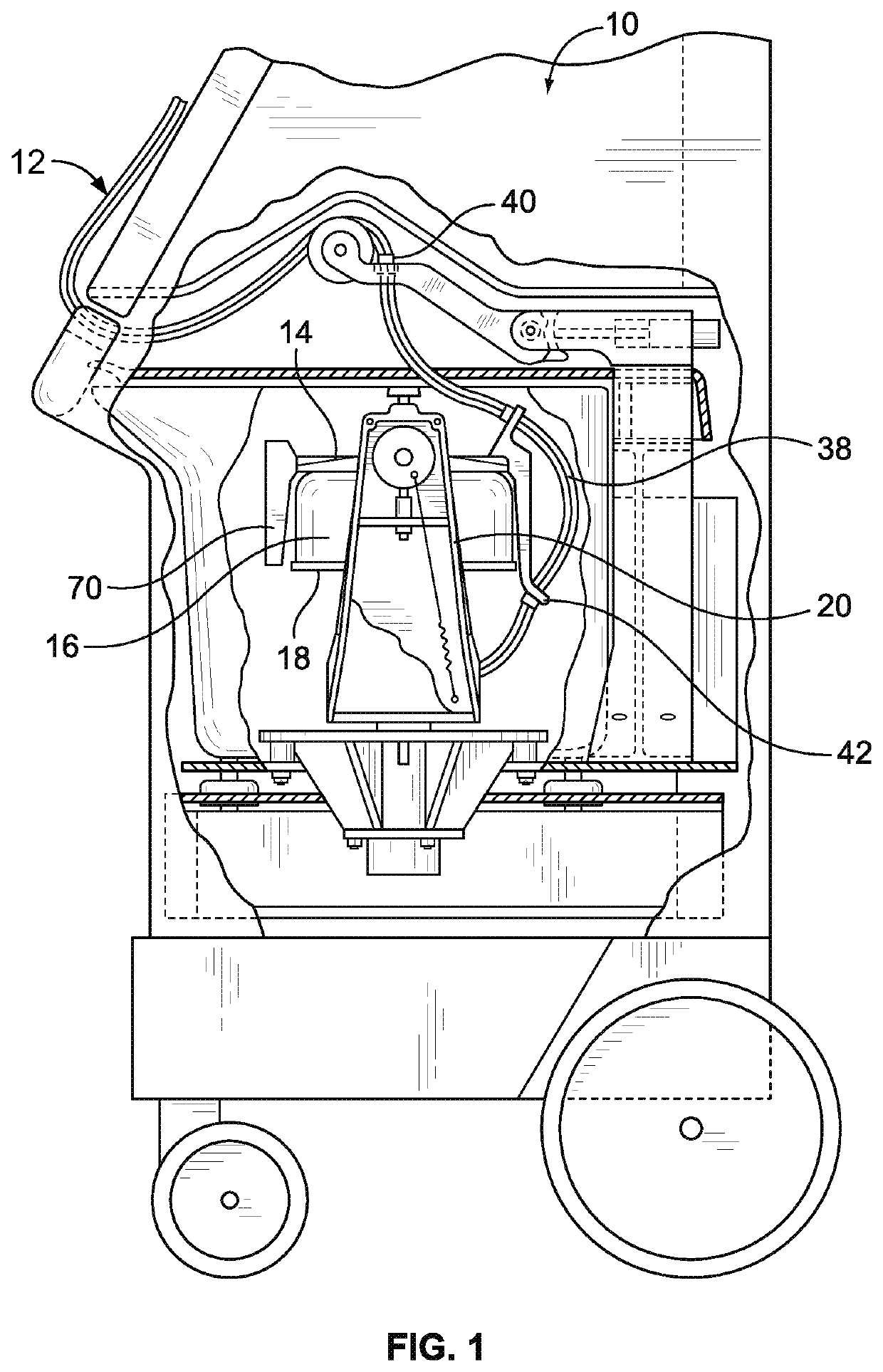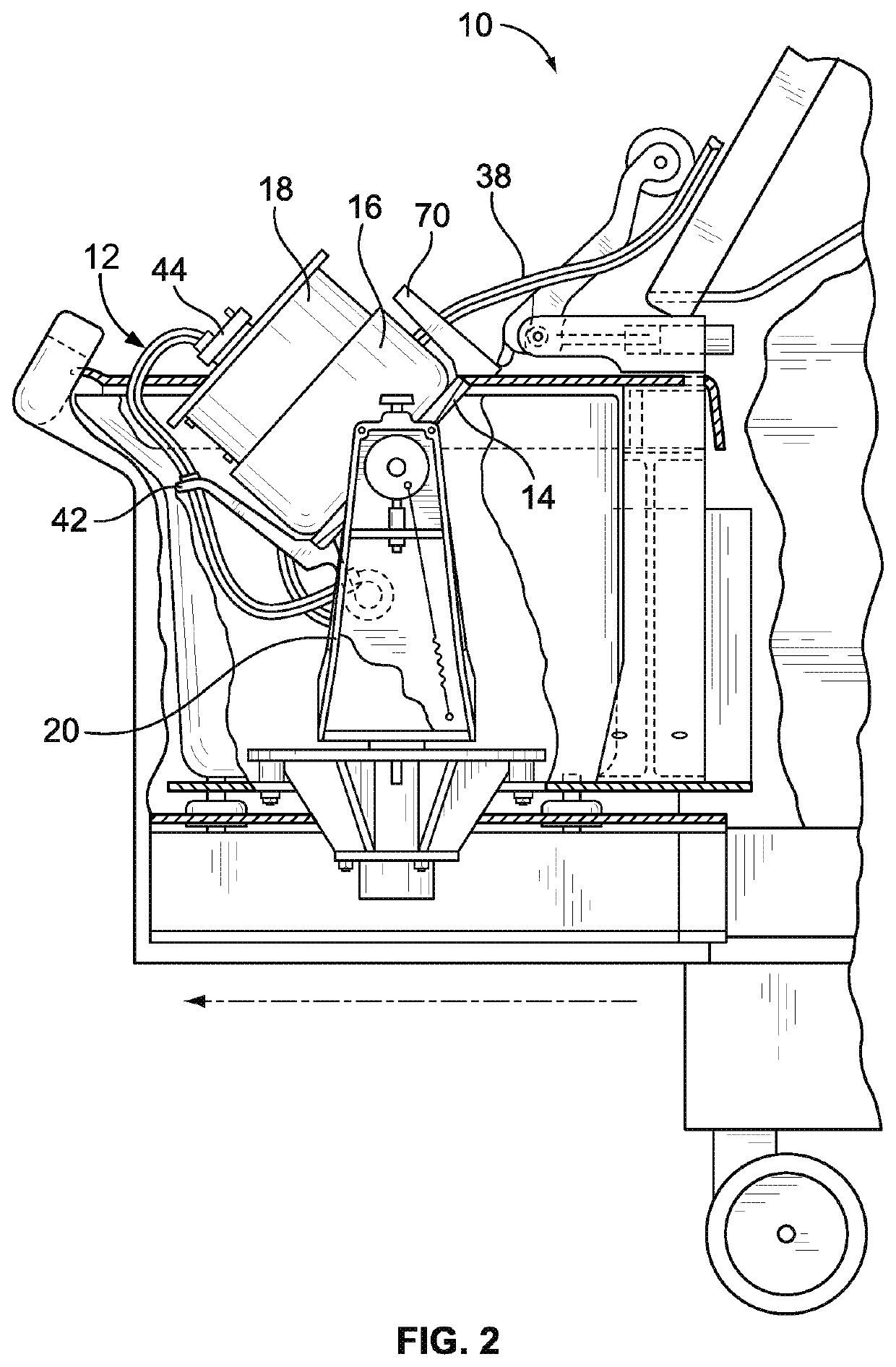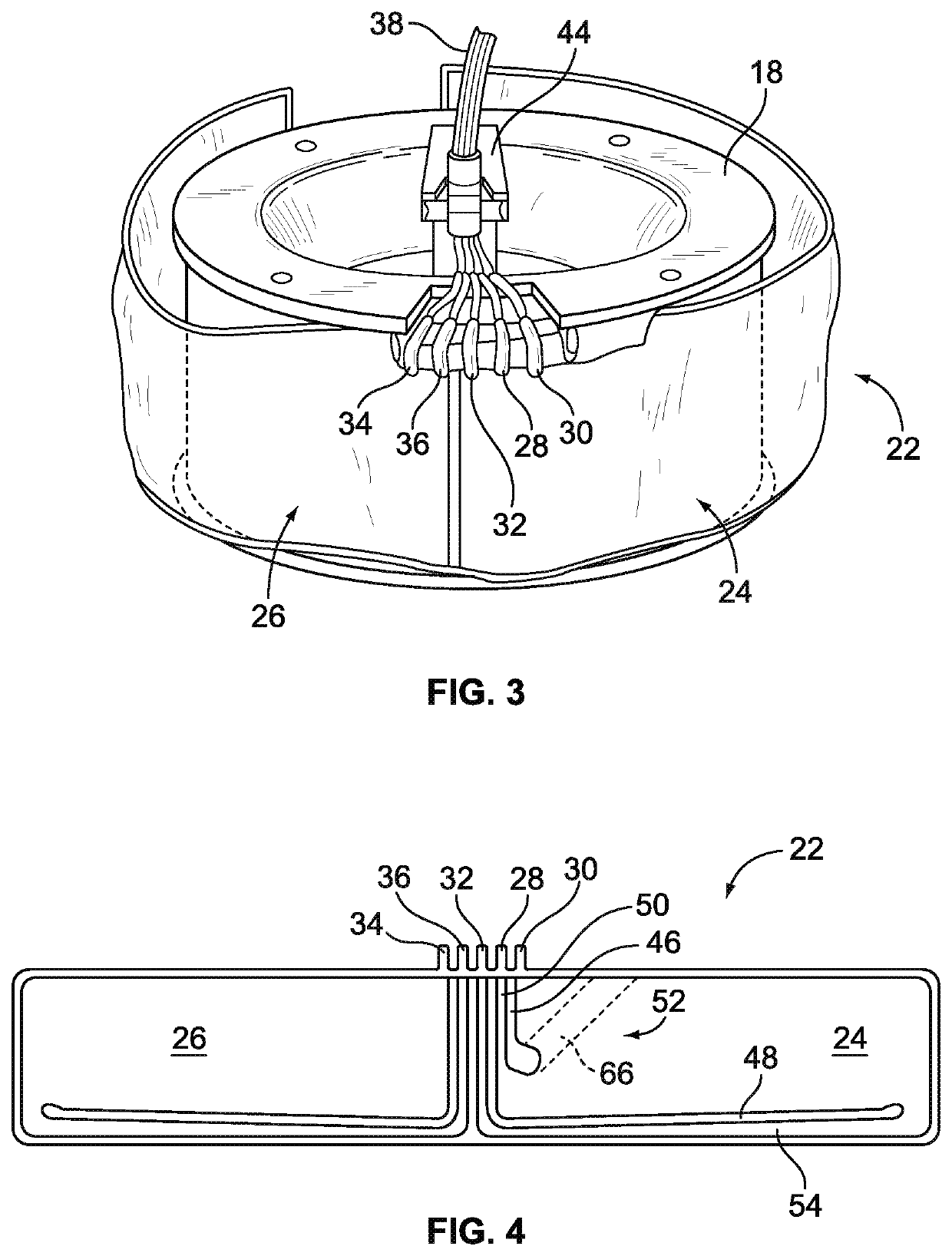Discerning between the presence of red blood cells and free hemoglobin in a biological fluid
a biological fluid and red blood cell technology, applied in the field of optical detection of redness in biological fluids, can solve the problems of erroneous measurement, low light transmission through fluids containing even low quantities of red blood cells, and prone to disturban
- Summary
- Abstract
- Description
- Claims
- Application Information
AI Technical Summary
Problems solved by technology
Method used
Image
Examples
Embodiment Construction
[0033]The embodiments disclosed herein are for the purpose of providing a description of the present subject matter, and it is understood that the subject matter may be embodied in various other forms and combinations not shown in detail. Therefore, specific designs and features disclosed herein are not to be interpreted as limiting the subject matter as defined in the accompanying claims.
[0034]FIGS. 1 and 2 show a biological fluid processing system that may be used in practicing the red blood cell and free hemoglobin differentiation principles of the present disclosure. The system is currently marketed as the AMICUS® separator of Fenwal, Inc. and is described in greater detail in U.S. Pat. No. 5,868,696. The system can be used for processing various fluids, but is particularly well suited for processing whole blood, blood components, or other suspensions of biological cellular materials. While red blood cell and free hemoglobin differentiation principles will be described herein wi...
PUM
| Property | Measurement | Unit |
|---|---|---|
| wavelength | aaaaa | aaaaa |
| angle | aaaaa | aaaaa |
| wavelength | aaaaa | aaaaa |
Abstract
Description
Claims
Application Information
 Login to View More
Login to View More - R&D
- Intellectual Property
- Life Sciences
- Materials
- Tech Scout
- Unparalleled Data Quality
- Higher Quality Content
- 60% Fewer Hallucinations
Browse by: Latest US Patents, China's latest patents, Technical Efficacy Thesaurus, Application Domain, Technology Topic, Popular Technical Reports.
© 2025 PatSnap. All rights reserved.Legal|Privacy policy|Modern Slavery Act Transparency Statement|Sitemap|About US| Contact US: help@patsnap.com



